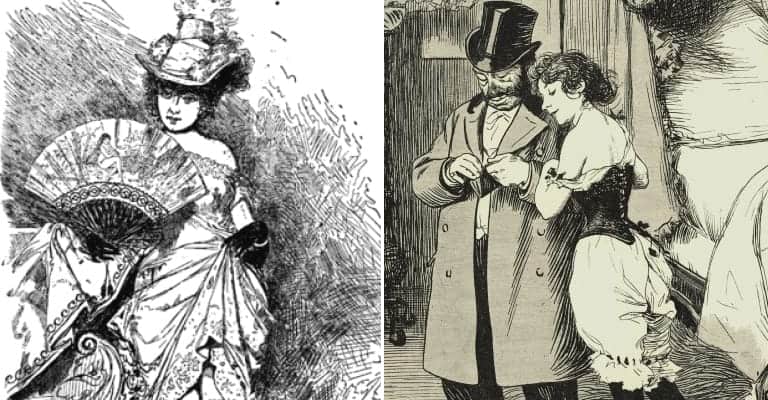The origins of the term hooker, meaning a prostitute or sex worker, are not entirely clear. There are several promising theories, but not one historical source can be fully proved with clear evidence. The proposed etymologies range from 16th-century slang to a nickname for a New York City borough in the 1850s. Another promising theory focuses on a Union general in the US Civil War named Joseph Hooker. The French language provides clues for a more agricultural source, as a French term for a sex worker comes from the literal hooking of men, as in fishing. More modern references to hooking a husband or wife in English could potentially support that theory.
Debates about the origins of words and phrases are part of the field of etymology – the study of the origins and histories of words. The term etymology itself stems from the Greek words for “true sense,” etumon, and “study of,” logia. Etymology has been practiced since the 6th century BC with Sanskrit and Greek scholars. It is part of the field of linguistics and is still studied today, especially for languages where few historical, etymological records exist such as the Uralic group of languages in northern Eurasia. Etymologists are those who research etymology, and they have several methods they can use to try to determine the history of words including the comparative study of texts between languages, the study of variations in dialects, and the study of semantic change over time.

General Joseph “Fighting Joe” Hooker
Joseph Hooker was a United States Army Officer who achieved the rank of Major General in the Union Army during the US Civil War. He earned the nickname “Fighting Joe” through a simple clerical error when a reporter used it to report on the Battle of Williamsburg. Hooker hated the name, but it stuck. His opposing general in the Confederate Army, Robert E. Lee even used the name to mock Hooker.
During the Civil War, Hooker’s army was stationed in Falmouth, Virginia. His unit was notorious for partying and hard-drinking, and a contemporary cavalry officer, Charles F. Adams Jr., described the station was a combination of a “bar-room and a brothel.” It is this reference to the station being like a bordello that fueled the popular legend that Hooker’s last name is responsible for the use of hooker to refer to a sex worker. He used cronyism and connection to high-ranking officials to get away with his riotous army encampment. Despite some legends, historical records do not seem to indicate that Hooker was a drinker and partyer himself, he just tolerated such behavior among his soldiers.

Despite the tantalizing hints of etymology in Hooker’s name, it is unlikely that he is the source of the term. The use of hookers to denote a sex worker first appeared in print in 1845. Hooker didn’t become a noteworthy public figure until the 1860s. However, it is entirely possible that contemporary rumors about Hooker’s behavior in the 1860s helped increase the popularity of the term due to incorrect assumptions that he was, in fact, responsible. When this happens, it is referred to as a false etymology, meaning a common misinterpretation of a word’s origin.

